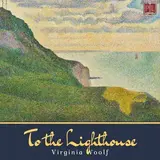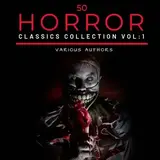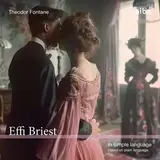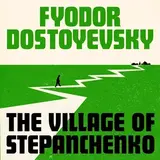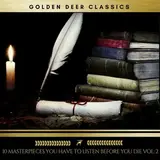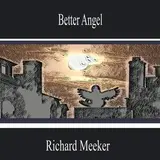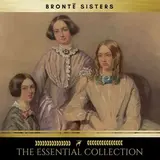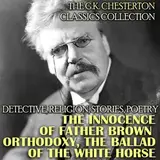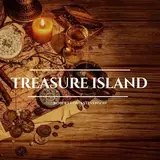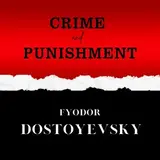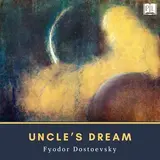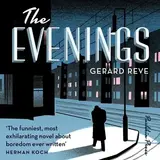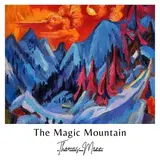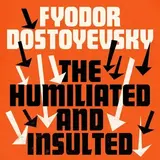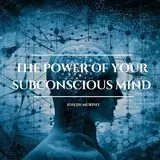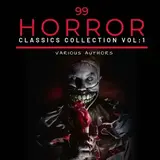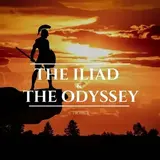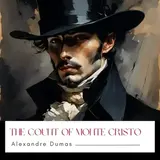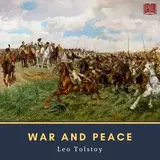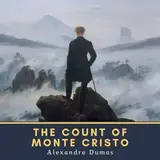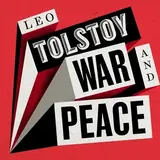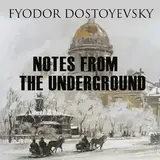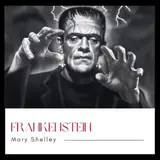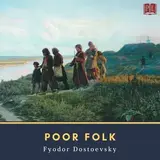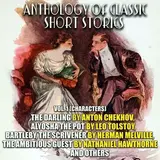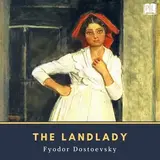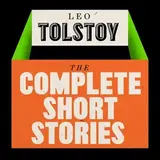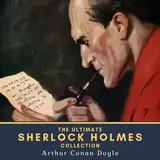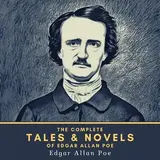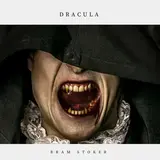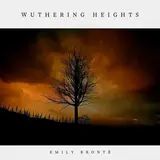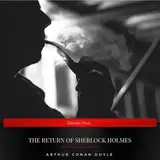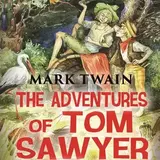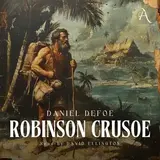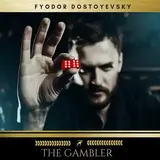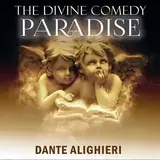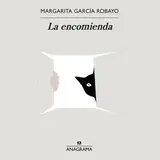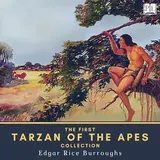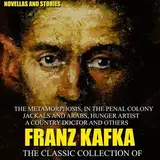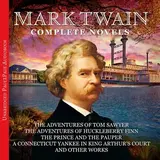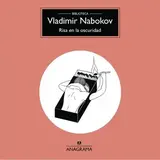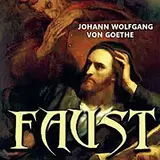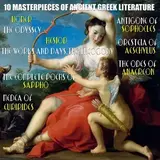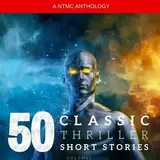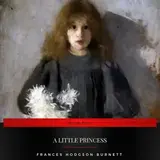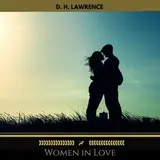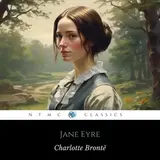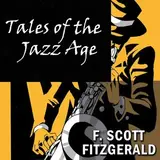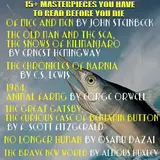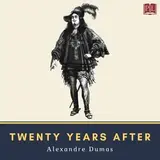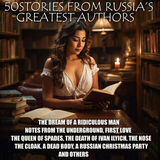

50 Stories from Russia's Greatest Authors
Voce: Michael Goodrick
Durata: 31h 43m
This book collects a magnificent set of works by Russian classical authors: Alexander Pushkin, Nikolai Gogol, Fyodor Dostoevsky, Anton Chekhov, Leo Tolstoy, Mikhail Bulgakov. Each original story, springing from a common creative heritage, delivers a glimpse of the immortal Russian Soul and has influenced modern literary trends. These stories are interesting to their core and will bring pleasure to readers. Get ready to immerse yourself within these immortal works that have long been counted among the best of classic world literature: Fyodor Dostoevsky. The Dream of a Ridiculous Man, Fyodor Dostoevsky. Notes from the Underground, Ivan Turgenev. First Love, Alexander Pushkin. The Queen of Spades, Leo Tolstoy. The Death of Ivan Ilyich, Leo Tolstoy. A Russian Christmas Party, Anton Chekhov. The Wife, Anton Chekhov. A Dead Body, Anton Chekhov. The Beggar, Leonid Andreyev. The Little Angel, Nikolai Gogol. The Nose, Nikolai Gogol. The Cloak, Nikolai Gogol. The Mantle, Mikhail Bulgakov. The Embroidered Towel – from A Young Doctor's Notebook and others.
Contents:
Fyodor Dostoevsky
The Dream of a Ridiculous Man
Notes From the Underground
The Christmas Tree and the Wedding
Ivan Turgenev
Mumu
First Love
The District Doctor
Aleksandr Kuprin
The Outrage
Alexander Pushkin
The Queen of Spades
Leo Tolstoy
A Letter to a Hindu
The Death of Ivan Ilych
God Sees the Truth
But Waits
A Russian Christmas Party
Anton Chekhov
The Wife
The Slander
The Horse-Stealers
The Petchenyeg
A Dead Body
A Happy Ending T
he Looking-Glass
Old Age
Darkness
The Beggar
In Trouble
Frost
Minds in Ferment
Gone Astray
An Avenger
The Jeune Premier
A Defenceless Creature
An Enigmatic Nature
A Happy Man
A Troublesome Visitor
An Actor's End
Vanka
A Country Cottage
Fat and Thin
Nerves
The Doctor
About Love
The Lottery Ticket
Leonid Andreyev
The Little Angel
Lazarus
Maxim Gorky
One Autumn Night
Her Lover
Mikhail Bulgakov
The Embroidered Towel
Nikolai Gogo
l
Christmas Eve
The Nose
A May Night
The Cloak
The Viy
Fyodor Dostoevsky (1821–1881)
Gambling debts, exile in Siberia, and a near-execution couldn't crush Dostoyevsky's soul. Instead, they fueled his dark explorations of guilt, redemption, and human suffering. Crime and Punishment wasn't just a novel — it was his own inner torment laid bare, proving that the most broken hearts tell the most unforgettable stories.
Ivan Turgenev (1818–1883)
Gentleman, dreamer, and eternal romantic, Turgenev captured Russia's soul with tender realism. Torn between old-world traditions and new intellectual currents, his Fathers and Sons immortalized generational clashes long before they became cliché. Parisian salons adored him, but Russia always haunted him.
Alexander Kuprin (1870–1938)
An eternal wanderer and romantic, Kuprin changed careers like pages in a book — soldier, actor, journalist. His The Duel was a fierce outcry against military monotony, while The Garnet Bracelet sang of unrequited love. Kuprin didn't write about life — he lived it, weaving every emotion into his stories.
Alexander Pushkin (1799–1837)
Poet, rebel, duelist. Pushkin defied society and death itself — until a fatal duel claimed him. His Eugene Onegin and The Captain's Daughter became the voice of Russia's soul, proving that the pen is mightier than the sword, though sometimes a sharp word can cost a life.
Leo Tolstoy (1828–1910)
An aristocrat who renounced wealth to seek life's meaning in the fields of Yasnaya Polyana. War and Peace wasn't just a novel — it was an epic universe. Tolstoy sought truth in family, faith, and simple labor, becoming a spiritual giant tormented by his own ideals.
Anton Chekhov (1860–1904)
A doctor by trade, a surgeon with words. Chekhov dissected human souls with short, precise strokes. His stories are snapshots of Russian life where humor veils heartbreak, loneliness, and endless "what ifs."
Leonid Andreyev (1871–1919)
The dark master of psychological horror, Andreyev blended fear, despair, and philosophy into vivid, unsettling tales. His The Red Laugh screamed the madness of war, while his stories left readers alone with their own demons.
Maxim Gorky (1868–1936)
Born in poverty, Gorky's life was a novel itself — hunger, wanderings, revolutions. His Mother became the anthem of the oppressed, and his stories sang of hope amid despair. A rebel with a pen, Gorky's words still echo through the streets of history.
Mikhail Bulgakov (1891–1940)
A doctor who traded scalpels for satire, Bulgakov navigated post-revolutionary chaos with biting wit. From his Kiev childhood to battling censorship in Moscow, life never played fair. Yet, even as illness dimmed his days, Bulgakov's The Master and Margarita cemented his place in literary immortality — a final act of defiance.
Nikolai Gogol (1809–1852)
The mad genius who made devils dance and bureaucrats squirm. Gogol's The Overcoat cloaked the tragedy of the little man, while Dead Souls unveiled the flaws and follies of Russian life. Haunted by his own mind, Gogol burned his final work — and perhaps a piece of his soul with it.
Pubblicato da: Strelbytskyy Multimedia Publishing
Titoli simili
Mostra tuttoPotresti anche apprezzare...
Mostra tuttoCome funziona?
Crea un account.
Crea il tuo account gratuito qui.
Scarica l'app Voxa
Disponibile per Android e iPhone su Google Play o su App Store.
Prova gratuita per 7 giorni
Hai accesso a 100.000 titoli e all'intera esperienza Voxa.
Ascolta offline
Scarica i tuoi audiolibri preferiti e goditeli anche senza connessione a Internet.


